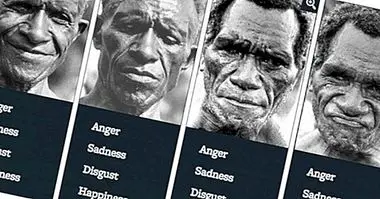Coping strategies: what are they and how can they help us?
When we face certain problems or challenges that life brings us, our ability to maintain a cool head can be key when successfully overcoming obstacles .
One of the capabilities that allow us to do it is coping. But what exactly is coping and why are some people more capable of achieving their goals?
Definition of «coping»
In psychology, coping has been defined as a set of cognitive and behavioral strategies that the person uses to manage internal or external demands that are perceived as excessive for the individual's resources (Lazarus and Folkman 1984). It can be considered as an adaptive response, of each one, to reduce the stress that derives from a situation seen as difficult to face.
The ability to cope does not only refer to the practical resolution of problems, but also to the ability to manage emotions and stress in front of the situation-problem . Modifying one's own coping strategies to effectively deal with stressful events depends, then, on the way events are evaluated, whether on our ability and the ability to gather information, seek help and social support in the context where lives.
The main coping strategies
Psychology studies highlight three main characteristics of coping strategies, from which they can be classified as follows: (1) assessment, search for the meaning of the critical event; (2) the problem, try to confront reality, handling the consequences that are presented to us; and (3) the emotion, regulation of the emotional aspects and attempt to maintain the emotional balance. In this order of ideas, we can identify that coping strategies are identified in three classes:
- Strategies focused on the problem,
- Strategies focused on emotions,
- Strategies based on avoidance.
Strategies focused on the problem are usually used under stress conditions seen as controllable: they are task-oriented strategies, to reach the resolution and / or modification of the problem. Instead, strategies focused on emotions tend to be used when we perceive the stressful event as uncontrollable, as what can be experienced in the face of danger: you try to face the problem by focusing on the emotions and release them and try to relax .
Finally, strategies based on avoidance tend to be handled in those moments in which the person assumes postponing active coping by the need to order and collect their psychosocial resources before actively facing the situation: strategies are focused on evasion , in distraction, in taking distance from the stressful event, or turning to another activity to avoid thinking.
Facing a situation does not mean doing it the right way
Strategies of functional and / or dysfunctional type can be used in each of these coping classes. This leads to the consideration that, in reality, there are no a priori adaptive or maladaptive coping styles, there are strategies that can be effective in one situation, they may not be effective in other situations .
Developing our capacity for good coping
So, it can be concluded that the essential element for a good adaptation to the stressful event , especially in the case of long duration stressful events over time, is both the flexibility in the use of coping strategies, the ability not to use a single strategy and change if it is ineffective and maladaptive.
Some coping strategies that we can learn to develop could be:
- Maintain active control of the problem
- Try not to make the situation more dramatic
- Relax and analyze the situation from different perspectives,
- Trust in ourselves and in our abilities,
- Admit our limits, we are people, not robots!
- Ask for help from the most intimate people, when we recognize that we need support.
The welfare state is therefore accessible through a balance between our will and the possibility of acting in accordance with the context in which we live, thus strengthening our internal resources and those available in our environment.



















